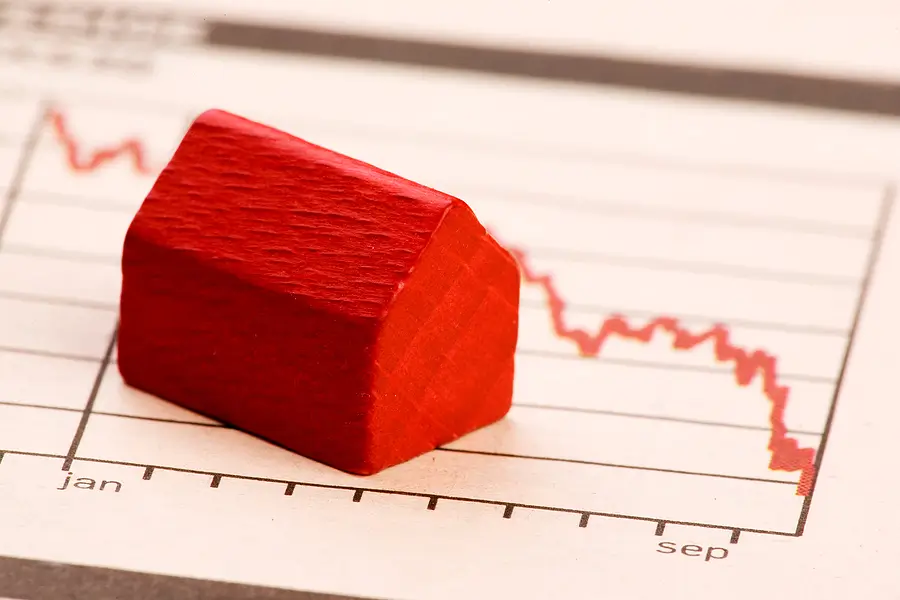Owning a residential rental property in Denver, CO, can be a profitable investment, but maximizing your returns requires a solid understanding of tax advantages, including depreciation. Depreciation allows rental property owners to deduct the cost of their investment property over time, reducing taxable income and improving cash flow.
This guide will walk Denver landlords through how to calculate rental property depreciation and take full advantage of the available tax benefits.
Understanding Depreciation on a Rental Property
Depreciation is a tax deduction that lets rental real estate owners recover the cost of their residential rental property over a set recovery period. The Internal Revenue Service (IRS) recognizes that buildings deteriorate over time, so it allows landlords to depreciate rental property under specific guidelines.
However, only the value of the structure itself, not the land, can be depreciated. Understanding rental property depreciation helps landlords reduce their tax liability while generating rental income.
To qualify for depreciation, a rental house must meet the following criteria:
It must be used in an income-producing activity.
The property must be expected to last more than one year.
The rental house must be placed in service before claiming depreciation deductions.
The property’s cost basis must be established, factoring in the purchase price, settlement fees, and certain land preparation costs.
How Is Depreciation Calculated on Rental Property?
The IRS provides two main methods to calculate depreciation: the General Depreciation System (GDS) and the Alternative Depreciation System (ADS). Most Denver landlords use the GDS, which follows the Modified Accelerated Cost Recovery System (MACRS) with a 27.5-year recovery period for residential real estate.
Steps to Calculate Depreciation on a Rental Property:
1. Determine the Property’s Cost Basis
The cost basis includes the purchase price, closing costs, loan origination fees, and loan assumption fees. However, you cannot include fire insurance premiums, utility services, or mortgage or principal payments.
2. Subtract the Land Value
Since land does not depreciate, landlords must determine only the depreciable portion of the property value. Real estate taxes or property appraisals can help determine the land’s worth.
3. Choose the Appropriate Depreciation Method
General Depreciation System (GDS): Uses the straight-line method with a 27.5-year recovery period for residential rental property.
Alternative Depreciation System (ADS): Typically required for properties financed with tax-exempt bonds or used in certain conditions, with a 40-year recovery period.
4. Calculate Annual Depreciation
Formula: (Property’s Cost Basis - Land Value) / 27.5 years
Example: If a rental property has a cost basis of $300,000 and the land value is $50,000:
($300,000 - $50,000) / 27.5 = $9,091 Annual Depreciation Expense
Depreciation Deductions and Taxable Income
Depreciation deductions directly impact taxable income by lowering the amount of rental income subject to taxation. For landlords in Denver, deducting depreciation expenses helps offset rental expenses like property taxes, mortgage insurance premiums, and legal fees.
Additionally, rental property owners should be aware of depreciation recapture—a tax that applies when a property is sold for more than its depreciated value. To avoid depreciation recapture tax, many real estate investors use strategies like 1031 exchanges to defer paying taxes on capital gains.
Claiming Depreciation on a Rental Property
To claim depreciation, landlords must report it on their tax return using IRS Form 4562. A tax professional can help ensure compliance with IRS rules while maximizing yearly tax deductions. Keep detailed records of depreciation calculations, rental expenses, and capital improvements to support claims.
Common Depreciable Costs:
Property’s cost basis (minus land value)
Certain land preparation costs
Property improvements, such as new roofing or HVAC systems
Closing costs related to the purchase
Mortgage fees associated with financing
Key Takeaways for Denver Landlords
Depreciation reduces taxable income by allowing landlords to deduct the cost of their investment property over time.
Only the value of the structure—not the land—can be depreciated.
The General Depreciation System (GDS) with a 27.5-year recovery period is most commonly used.
Annual depreciation is calculated as (Property’s Cost Basis - Land Value) / 27.5.
Avoid depreciation recapture tax by deferring capital gains with tax strategies like 1031 exchanges.
Maximize Your Investment: Final Thoughts on Depreciation
Calculating rental property depreciation for Denver landlords is a valuable tool for reducing tax liability and maximizing returns on investment properties. By properly depreciating residential rental property, property owners can enjoy significant tax benefits and improve cash flow. If you have questions about how to calculate depreciation on a rental property, PMI Elevation is here to help. Contact us today for expert property management services in Denver, CO.


